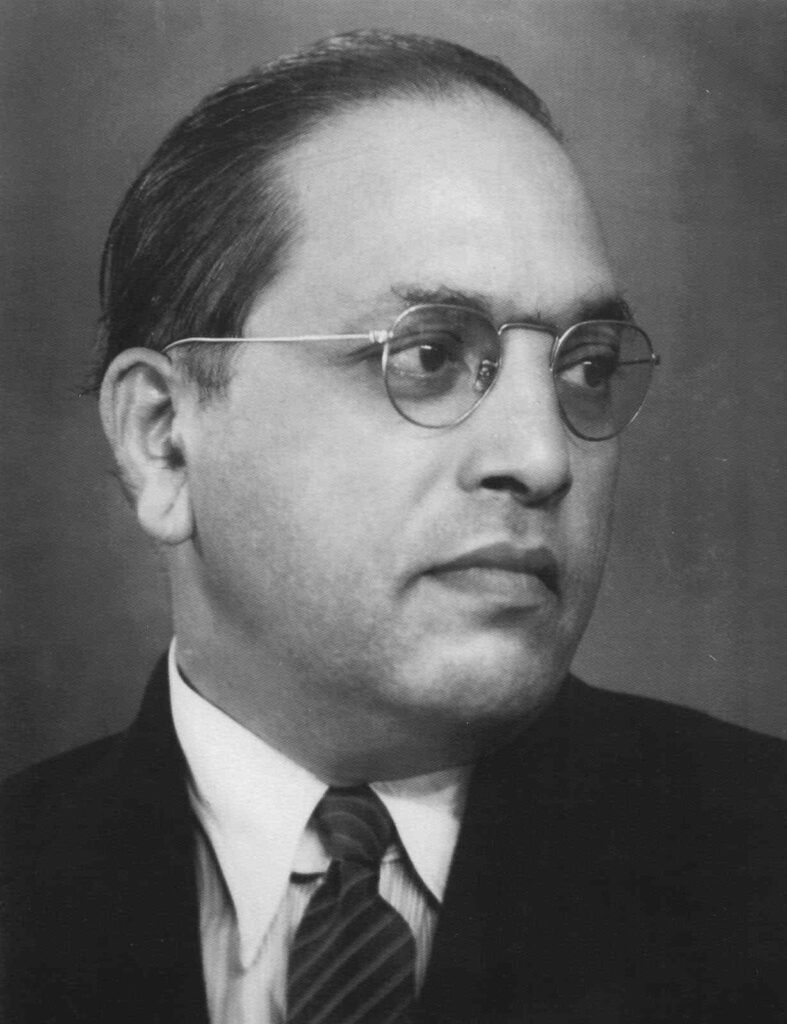Indian Constitution@75 continues to represent the vision and values of its founding fathers.
Today as we commemorate the 134th birth anniversary of Dr. B.R. Ambedkar, Indian Jurist, Social Reformer, Economist and Political Leader, it is very important for us to revisit his contributions made for building a newly independent country like India. Being an erudite scholar, Dr. Ambedkar had a keen interest in issues that were hindering the progress of the country. We easily identify him as the Chair of the Drafting Committee of the Constituent Assembly formed in 1947 with the goal to submit the final draft of the constitution. Ever Since its establishment on August 29, 1947, the Drafting Committee played a crucial role in drafting the Constitution of India.

The first constitution framed and given to themselves by the people of India was adopted by the Constituent Assembly on 26 November 1949. It started full operation on January 26, 1950. It was an occasion during which our country established the fundamental framework for the governmental structures that would govern us. It created the state’s three main organs: the legislature, executive, and judicial. It specifies their abilities, demarcates their responsibilities, and governs their interactions with one another and with the public. Despite its strengths, there are many who are of the mindset that a constitution is an irrelevant piece of document to be appreciated only for its intellectual content and that it has nothing much to offer the citizens except poetic platitudes and phrases of grandiloquence.
In this context, numerous well-known political management specialists strongly objected, claiming that it was incorrect to treat a country’s constitution as a simply inactive paper. This is because a constitution is more than just its wording. The constitution is a living entity made up of functional institutions. It is always expanding and developing. Every constitution gets meaning and content only from the manner in which and the people by whom it is operated, the effects it acquires from how it is operated, the effects it acquires from how it is interpreted by courts of the land, and conventions and practices that grow around it in the actual process of its working- ‘Be it an abstract piece of ideological “isms” or a pulsating document that lays the road map for the country’s progress/growth, a constitution definite.’
It was influenced by other established nations or state constitutions. It has a lovely blend of unitary federal format–the sheer size of the country and the numerous diversities caused by religion, language, regions, cultures, and so on. The Irish Constitution has various policy frameworks that the state might implement for the benefit of society. This became known as the ‘Directive Principles of State Policy,’ under which the state might enact legislation to achieve socio economic gains. However, these guiding principles cannot be enforced by legislation; they only serve to guide the government in its administration of the nation. According to a theorist, ‘They are in the nature of ideals put by the founding fathers before the state, and all the organs of the state must work to achieve them.’
In this regard, Dr. B.R. Ambedkar’s Directive Principles of State Policy, which appear in the fourth part of the constitution, were a significant contribution. They are distinctive and interesting because they depict the hopes and aspirations of the constitution’s founders. It was said that these clauses are not enforceable in any court, but they are vital to the country’s government, and it is the state’s responsibility to implement these principles while establishing laws.
According to Dr. Bhimaro Ramji Ambedkar, the directive principles is merely another name for the instruments of instructions. They are instructions to the legislature and the executive. Anyone in power has to respect them.
Ours is the lengthiest constitution. It is lengthy because it is extremely comprehensive and includes detailed matters appropriate for governance of the nation. It is that the drafters of the constitution did not want certain matters subject to controversy and discussion. The need to make most things pertaining to governance clear cut and above board has led to the Indian constitution being an exhaustive one. The size, complexities and the diversities of the Indian situation also necessitated several special, temporary, transitional and miscellaneous provisions for certain regions of the country or country of classes.
Dr. Ambedkar has always maintained humility when commended for his tremendous and unique labour. He frequently said that India was aware of Parliaments or Parliamentary procedures centuries before India gained freedom. A study of the Buddhist Bhikshu Sanghas revealed that not only did Parliaments exist, but the Sanghas were well-versed in and followed all of the norms of Parliamentary Procedure known to modern times. They had regulations in place for seating arrangements, motions, resolutions, quorum, vote counting, and ballot voting, among other things. It is said that, while Buddha adapted the above-mentioned principles of parliamentary process to Sangha meetings, he did so by borrowing them from the rules of the country’s political assemblies at the time.
In conclusion, even 75 years after its inception, the Indian Constitution continues to embody the vision and ideals of its founding fathers since it is built on the people’s social, political, and economic ethos, religion, and ambitions.
Get Latest News Live on Storify News along with Breaking News and Top Headlines from US News, Trump News, Taylor Swift and Travis Kelce, Kamala Harris, Entertainment, Technology and around the world.
